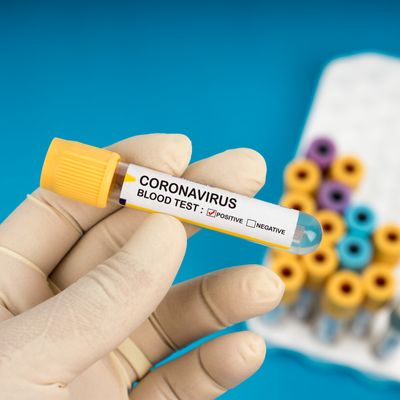
Though public-health experts predict that, eventually, 40 to 70 percent of the world will likely contract COVID-19 sometime this year, it is only March, and in many parts of the United States, it’s possible to not yet know someone affected. That will change, and already is, in “hot spots” like New York and Washington State. But for now, especially in lesser-affected places, or among people who believe themselves immune or not at risk, a coronavirus diagnosis is sometimes treated as somewhat shameful.
According to a report by the New York Times, an upscale Connecticut community became a COVID-19 super-spreader, partially assisted by secrecy among residents, who compared a coronavirus diagnosis to “having an STD.”
Will Haskell, the state senator who represents Westport (and, full disclosure, the brother of David Haskell, New York’s editor-in-chief), told the Times the comparison isn’t crazy, and says he’s been fielding “frantic” calls from nervous constituents. Haskell warned that other communities who follow Westport’s secrecy are likely to experience outbreaks of their own.
Other groups — specifically, Asian immigrants and Asian-Americans — experience coronavirus stigma more acutely, whether they have the coronavirus or not: Anti-Asian hate crimes are on the rise, and victims report being spit on, stalked, harassed, and even attacked.
Obviously, nobody wants to get the coronavirus, but the disease is neither partisan nor prejudiced; all age groups and all races can be infected. And one mitigation effort, known as contact tracing, requires those who do become sick to let others know, so that they can self-isolate themselves, reducing the likelihood of spread. Because our public-health system is strained under the weight of tens of thousands of cases (and more to come), much of this disclosure responsibility falls to individuals, says Rishi Desai, a pediatric infectious-disease physician and chief medical officer at Osmosis.
In a “normal scenario,” says Desai, public-health officials would be notified of every positive diagnosis, and would then begin the contact-tracing process, trying to track down every person the patient had been in contact with while symptomatic (and in the days before symptoms appear) so that they, too, can self-isolate. Unfortunately, this is not the situation we find ourselves in. “We’ve got lots and lots of cases, and we have public-health departments that have no time and are under-resourced,” says Desai. “In settings like New York City, which is kind of the extreme event, they are completely overrun, and this degree of contact tracing is just impossible to do.”
Even if we were able to identify every positive diagnosis of COVID-19, says Desai, our resources are limited such that health-care systems must balance safety with supply. “If we have a health-care worker who might have COVID-19, if you really quarantined everyone they’d been in contact with in the last couple of weeks, that might be the entire emergency room that you’re quarantining — every doctor, nurse, respiratory therapist, etc.,” he says. “That really is probably unwise, given that those people need to be able to work.” This is why we see other countries, like Singapore and South Korea, taking “in-between” measures, says Desai. That might mean isolating only if you were in prolonged contact with someone who was actively symptomatic (i.e., coughing and sneezing), and not if you just passed them in the hallway.
Given our present lack of resources, most Americans will be left to approximate the contact-tracing process on their own. This will be easier for some to do than others. Tom Hanks — a beloved, wealthy, white movie star — has the privilege of riskless disclosure; poor people, Asian people, and other marginalized groups have more on the line. Our collective reaction to diagnoses is likely to change as more and more people get them. But it’s important that we do disclose, as much as possible, especially now.
“The key is letting people know so they can be thoughtful about who they’re around,” says Desai. “You might think, Oh, well, I was only around young, healthy people, so it’s no big deal if they get it. But you don’t know someone else’s living situation.” If you start to experience COVID-19 symptoms, giving a heads-up to the people you’ve been in contact with allows those people to more carefully look out for their own loved ones. It is doing them — and all of us — an enormous favor.
People who get sick and recover are likely to benefit us in other ways, too, says Desai. “I think people who recover [and have some level of immunity] will be the folks that help us get through this because they can work on the front lines of the health-care system and do things that others can’t do,” he says. “They might be feeling stigma today but they’ll also be the people we look to to help us get through this more effectively.”
We’re committed to keeping our readers informed.
We’ve removed our paywall from essential coronavirus news stories. Become a subscriber to support our journalists. Subscribe now.





